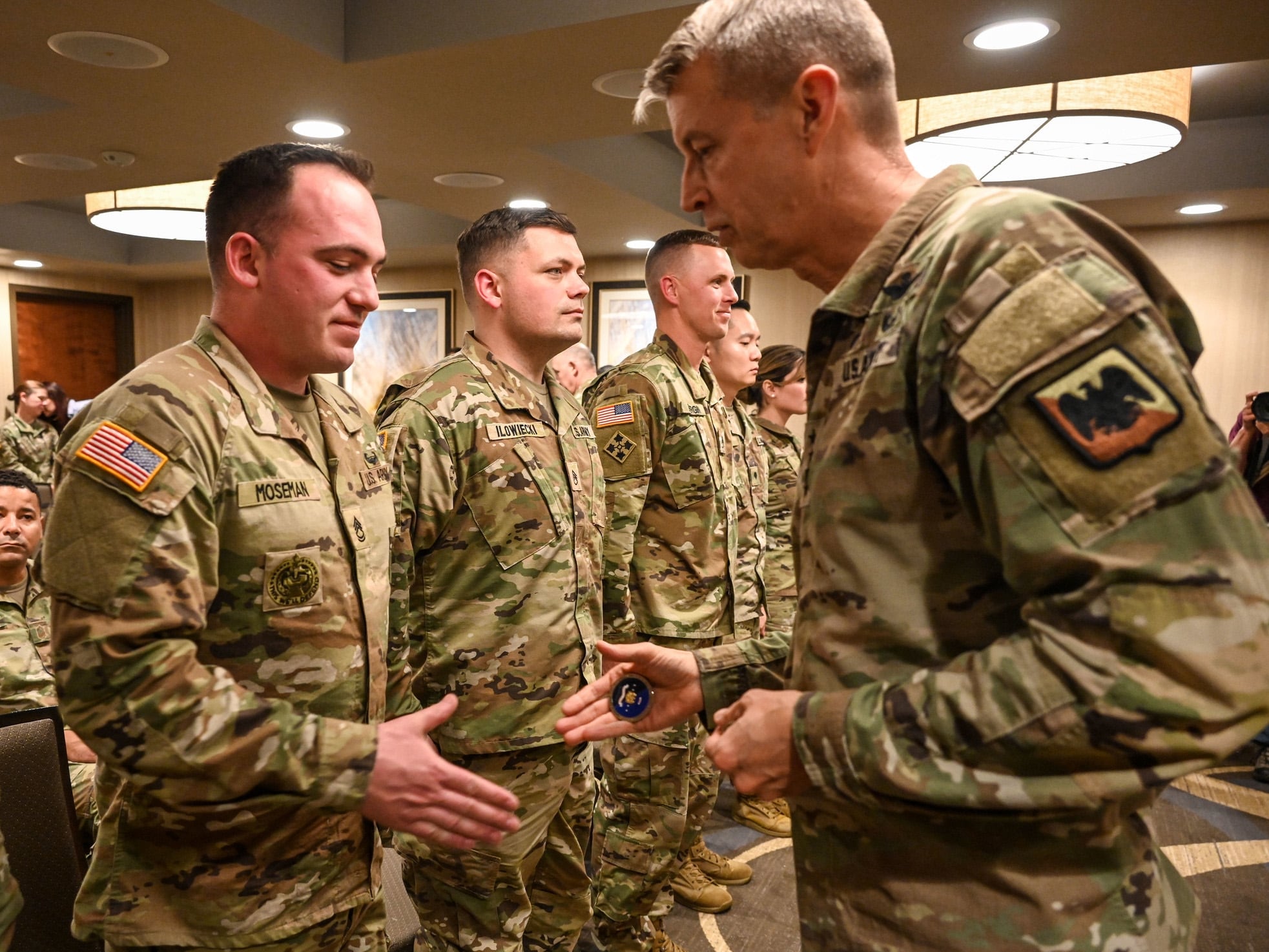The National Guard is still thousands of troops short of meeting its end-strength personnel requirements for this fiscal year, Guard officials revealed this week.
The Air National Guard still needs roughly 3,500 troops to fulfill its 108,400 authorized end-strength by Sept. 30. Data provided to Military Times indicates that the Army National Guard has actually surpassed its 2023 personnel goal (by 699), though it has inducted 1,298 fewer recruits than it planned to.
This year’s enlistment numbers mark an improvement from 2022 when the Guard ended the fiscal year with 9,000 fewer soldiers in its ranks. Still, a confluence of factors — a competitive labor market, strict eligibility requirements, and disinterest in military service among eligible recruits — continue to hamper the service’s recruitment efforts.
“This is the most challenging recruiting environment the Department of Defense has probably ever faced, and that reaches across all the components,” Col. Anthony Pasquale, chief of the Air National Guard’s Recruiting and Retention Division, told reporters at a press conference Wednesday.
Most other branches of the military have been afflicted by similar woes. The Navy, Air Force, and Army are also beset by enlistment shortages. Leaders from the three branches laid bare their struggles during a House Armed Services Committee hearing in April. The Army and the Air Force disclosed to members of Congress that both expected to miss their enlistment targets by 10,000; the Navy predicted a personnel deficit of 6,000. The Marines and Space Force, meanwhile, bucked the trend, forecasting a healthy influx of enlistees.
The Guard has spent tens of millions on marketing and advertising efforts to boost its allure, according to officials. Lifted pandemic restrictions have given Guard recruiters greater access to schools, traditionally fertile recruiting grounds.
It has also eased some enlistment requirements. As of this March, for instance, prospective recruits can now sport up to three tattoos instead of one ring-shaped design on their finger. The goal of these adjustments, Pasquale said, is to “open up the aperture to as many candidates that are willing to join the Air National Guard as possible.”
Guard officials say recruitment numbers have ticked up as a result; retainment numbers, they add, remain strong. The Army National Guard claims 3,048 more enlistees have signed up for service than at this time last year. Pasquale told reporters that Air National Guard recruitment has climbed 15% since 2022.
Last year, Gen. Dan Hokanson, the National Guard Bureau’s top general, floated the possibility of offering troops free healthcare and reintroducing bonuses for guard enlistees who refer others to become part-time soldiers to further boost recruitment.
“Expanding access to healthcare for all members of the National Guard continues to be one of the Chief of the National Guard’s top legislative priorities,” a Guard spokesperson told Military Times. “It’s still working its way through the legislative process.”
Last November, Sens. Tammy Baldwin, D-Wis., and Susan Collins, R-Maine, introduced a bill that would eliminate fees for guardsmen enrolled in TRICARE Reserve Select, an insurance plan for Guard members. Rep. Andy Kim, D-N.J., sponsored a bill on Tuesday that proposed a similar change. Both have yet to make it past the introduction phase.
It’s also unclear if this recruitment rebound is evenly distributed across states. Guard officials did not provide state-by-state recruitment and retention data, though they acknowledged that some states and territories encounter unique enlistment obstacles.
Competition from the private sector, however, continues to be the most difficult hurdle to jump.
“It’s Wendy’s. It’s Carl’s Jr,” Sgt. Maj. Marco Irenze, a recruiter for Nevada’s Army National Guard, responded when asked about the companies poaching potential Guard recruits. “It’s every single job that you saw a young person go up against because now they are offering the same incentives that we are offering.”
Additionally, National Guard troops trained in IT are often lured away from the military to the tech industry by the prospect of better pay. A Guard official from Washington state lamented that companies like Amazon and Microsoft are nabbing some of its most promising personnel. Recruiters hope training programs and flexible service commitments will make reluctant Guardsmen reconsider.
“Now we can have some flexibility to work with the employers, to allow these individuals to still have opportunities to make the money on the civilian side, and still serve in the Guard in that capacity in different perspectives,” Tech. Sgt. Stephen Graves, a recruiter for the Illinois National Guard, remarked. “That is the way we try to circumvent the competition, but in the end, we also need these individuals and the employers to be on board and understand that their employees are serving commendably.”
Jaime Moore-Carrillo is an editorial fellow for Military Times and Defense News. A Boston native, Jaime graduated with degrees in international affairs, history, and Arabic from Georgetown University, where he served as a senior editor for the school's student-run paper, The Hoya.




